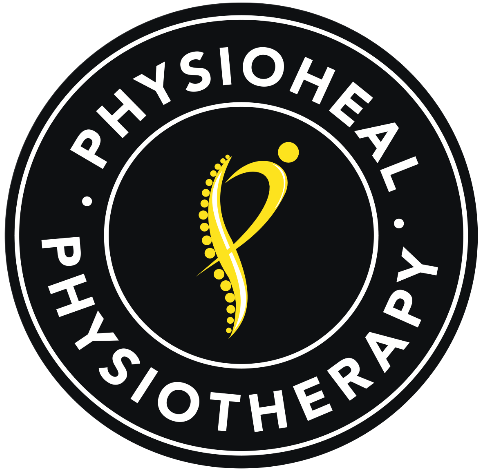Introduction
Physiotherapy, often referred to as physical therapy, is a healthcare profession dedicated to improving and restoring physical function, mobility, and overall well-being. It employs a wide range of therapeutic techniques to address various musculoskeletal and neurological conditions. In this comprehensive guide, we will delve into the diverse types of therapy included in physiotherapy, shedding light on the effectiveness and applications of each.
1. Manual Therapy
Manual therapy is a cornerstone of physiotherapy and involves hands-on techniques applied by trained physiotherapists. These techniques aim to improve joint mobility, reduce pain, and enhance muscle flexibility. Common manual therapy techniques include:
- Joint Mobilization: Gentle movements to restore normal joint function.
- Soft Tissue Mobilization: Manipulation of muscles and fascia to alleviate tension and pain.
- Manipulative Therapy: High-velocity, low-amplitude thrusts to improve joint function.
2. Exercise Therapy
Exercise therapy plays a pivotal role in physiotherapy, focusing on improving strength, flexibility, and endurance. Physiotherapists design customized exercise programs tailored to each patient’s specific needs. These exercises may include:
- Range of Motion Exercises: To improve joint flexibility.
- Strengthening Exercises: Targeting weakened muscles.
- Balance and Coordination Training: Vital for injury prevention.
- Functional Training: Mimicking daily activities to regain independence.
3. Electrotherapy
Electrotherapy involves the use of electrical stimulation to alleviate pain, reduce muscle spasms, and promote healing. Common electrotherapy modalities include:
- Transcutaneous Electrical Nerve Stimulation (TENS): Delivers low-voltage electrical currents to block pain signals.
- Ultrasound: Uses high-frequency sound waves to promote tissue healing and reduce inflammation.
- Interferential Current (IFC): Applies a higher frequency of electrical stimulation for pain relief.
4. Hydrotherapy
Hydrotherapy utilizes the therapeutic properties of water to aid in rehabilitation. Patients perform exercises and movements in a warm pool, which reduces the impact on joints and facilitates muscle relaxation. It is particularly beneficial for conditions like arthritis, joint injuries, and post-surgical recovery.
5. Heat and Cold Therapy
Heat and cold therapy are valuable tools in physiotherapy for managing pain and promoting healing:
- Heat Therapy: Increases blood flow, relaxes muscles, and eases stiffness. It’s ideal for chronic conditions.
- Cold Therapy: Reduces inflammation, numbs the area, and is effective for acute injuries.
6. Respiratory Physiotherapy
This specialized branch of physiotherapy focuses on improving lung function and aiding patients with respiratory conditions. Techniques include:
- Breathing Exercises: To enhance lung capacity and oxygenation.
- Chest Physiotherapy: Techniques to clear mucus and improve lung ventilation.
- Aerosol Therapy: Administering medications through inhalation.
7. Neurological Rehabilitation
Neurological physiotherapy is designed for individuals with neurological disorders such as stroke, spinal cord injuries, and multiple sclerosis. Therapists use techniques like:
- Gait Training: To improve walking and mobility.
- Balance Training: Reducing the risk of falls.
- Functional Electrical Stimulation (FES): Stimulating muscles to restore movement.
8. Sports Physiotherapy
Sports physiotherapy caters to athletes, focusing on injury prevention, performance enhancement, and rehabilitation. Therapists employ techniques such as:
- Sports-Specific Training: Tailored exercises for a particular sport.
- Biomechanical Analysis: Identifying and correcting faulty movement patterns.
- Return-to-Sport Programs: Safely transitioning athletes back to competition.
9. Pain Management
Physiotherapists are experts in managing pain through various modalities, including:
- Manual Therapy: Targeting pain at its source.
- Therapeutic Exercise: Strengthening supporting muscles.
- Education: Teaching pain management strategies and ergonomic principles.
10. Women’s Health Physiotherapy
This specialized area addresses women’s unique healthcare needs, including pre and post-natal care, pelvic floor rehabilitation, and management of conditions like urinary incontinence.
Conclusion
Physiotherapy is a dynamic field encompassing a wide array of therapeutic techniques aimed at enhancing physical function and well-being. From manual therapy and exercise programs to electrotherapy and specialized neurological rehabilitation, physiotherapists play a vital role in improving the lives of individuals dealing with various health challenges.
If you’re seeking expert physiotherapy care in Gurgaon, look no further than Physioheal, led by best physiotherapist, Dr. Divya Gaur. At Physioheal, the best physiotherapy clinic in Gurgaon, we are dedicated to providing personalized and effective treatments to help you achieve your health and mobility goals. Whether you’re recovering from an injury, managing a chronic condition, or striving to enhance your overall physical well-being, our team is here to support you.
Don’t let pain or physical limitations hold you back from living your best life. Contact us today at +91–9999259307 to schedule an appointment and take the first step toward a healthier, more active future. Let us be your partner on your journey to optimal well-being.
